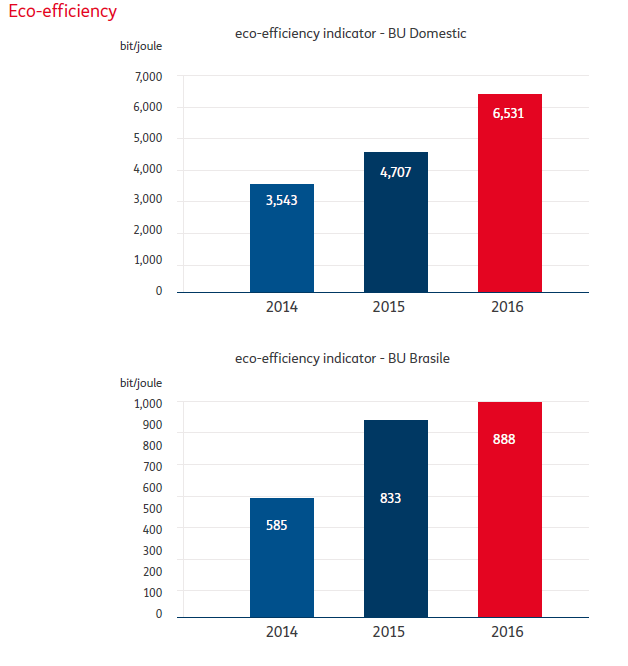Enviromental protection
Eco-efficiency indicator
[G4-EN5] The Group measures its own energy efficiency by using an indicator that establishes a relationship between the service offered to the customer in terms of bits transmitted and the company’s impact on the environment represented by joules of energy consumed. The factors taken into consideration are the amounts of data and voice traffic of the fixed/mobile networks and energy consumption for industrial purposes (transmission and climate control in exchanges), domestic purposes (electricity for office use, air conditioning and heating in the offices) and vehicles. The diagrams show the level of the eco-efficiency indicator over the past three years for the Domestic and Brazil BU.

In 2016 the value of the indicator calculated for the Domestic BU was 6,531 bit/joule, up by around 39% compared to 2015 and by 84% compared to 2014. The commitment continues with the establishment for 2017 of an objective of 8,500 bit/Joule, an increase of +30% on the figure for 2016 (see 2017 Objectives in the Appendix).
The eco-efficiency indicator calculated for Brazil also showed continuous improvement over time: in 2016 it grew by approximately 7% compared to 2015 and by approximately 52% compared to 2014. This was due to a notable increase in the data traffic over the last year which did not lead to a corresponding increase in the electricity consumption thanks to the efficiency of the network.
The values of the indicators calculated respectively for Italy and Brazil are not directly comparable because the two organisations are very different in operational and environmental terms: e.g. in Brazil the traffic is primarily mobile and, as previously mentioned, no heating fuels are used in view of the particular climate conditions.
